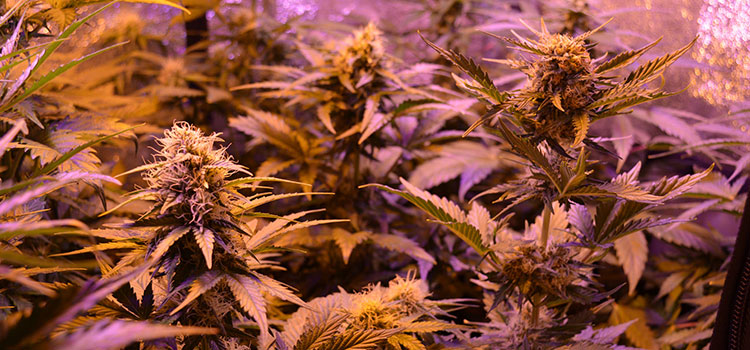The Washington State Liquor and Cannabis Board (LCB) has organized the formation of a lab proficiency standards and pesticides focused work group comprised of regulators, industry leaders and cannabis lab specialists.
The group, whose first meeting takes place this Thursday in Olympia, will work to determine lab proficiency standards for Washington’s cannabis testing labs, as well as how to proceed with the regulatory control of pesticide use on legal cannabis crops.
Jeremy Moberg, owner of CannaSol Farms in Okanogan County, said in a phone interview this is likely the first time the LCB has organized a collaborative effort between enforcement agencies, industry representatives and the testing labs themselves. Moberg was invited by the LCB to Thursday’s work group.
“I think it’s great,” he said. “The working group is meant to collaborate varying opinions from parts of the industry.”
The pesticides issue has vexed regulators for some time, and with marijuana product recalls now an alarming reality in both the Washington and Colorado markets, Thursday’s work group will seek to safeguard Washington consumers from dangerous pesticides while fostering growth in the industry.
Currently, all regulations for pesticide use on agricultural products fall under the Federal Insecticide, Fungicide, and Rodenticide Act (FIFRA). Because cannabis remains federally prohibited, however, this has led to particularly restrictive limitations for commercial marijuana growers. The Washington State Department of Agriculture has announced a list of approved pesticides for commercial cannabis growers — on an agricultural scale, however, the options are minimal.
According to a document issued by the LCB last September:
Use of a pesticide on marijuana is allowed if:
- The active ingredient is exempt from the requirements of a tolerance on all food crops (e.g., auxins, biopesticides [most active ingredients], copper, cytokinins, gibberellins, petroleum oil, phosphorous acid, pyrethrins, soap, sulfur), and
- The label has directions for use on unspecified food crops, home gardens or herbs (outdoor or enclosed), including unspecified food crops or herbs grown as bedding plants. (Marijuana will not be specifically listed as a crop on the pesticide label.)
Thursday’s meeting will be the first of several sessions aimed at taking control of cannabis pesticides on a local level. The group also will likely discuss whether or not further pesticides should be approved for commercial growers. The absence of federal legalization, however, complicates things.
“The biggest issue in front of the federal government is consumer safety,” Moberg told Ganjapreneur. “And the biggest problem we have is that states are not able to regulate pesticides to ensure public safety is met in this industry. It’s actually illegal for states to regulate pesticides.”
“[Cannabis] is a crop that’s both consumed orally and inhaled, and there’s a lot to be studied there,” he said. “My fear is the federal government goes through all of this and comes up with a laundry list of toxic pesticides that are someday going to be allowed on cannabis.”
Moberg hopes the work group will reach an agreement to guarantee safety for Washington consumers from potentially toxic pesticides.
Get daily cannabis business news updates. Subscribe
End
